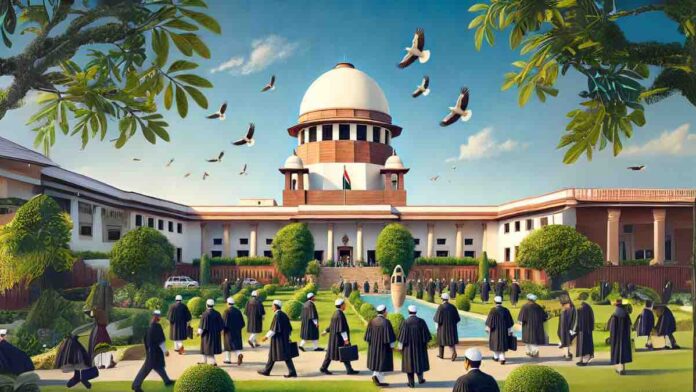In a landmark judgment, the Supreme Court of India reiterated the legal principle that while employees have a fundamental right to be considered for promotion under Articles 14 and 16 of the Constitution, they do not have an absolute or fundamental right to be promoted. The ruling came in the case Government of West Bengal
To Read More Please Subscribe to VIP Membership for Unlimited Access to All the Articles, Download Available Copies of Judgments/Order, Acess to Central/State Bare Acts, Advertisement Free Content, Access to More than 4000 Legal Drafts( Readymade Editable Formats of Suits, Petitions, Writs, Legal Notices, Divorce Petitions, 138 Notices, Bail Applications etc.) in Hindi and English.




